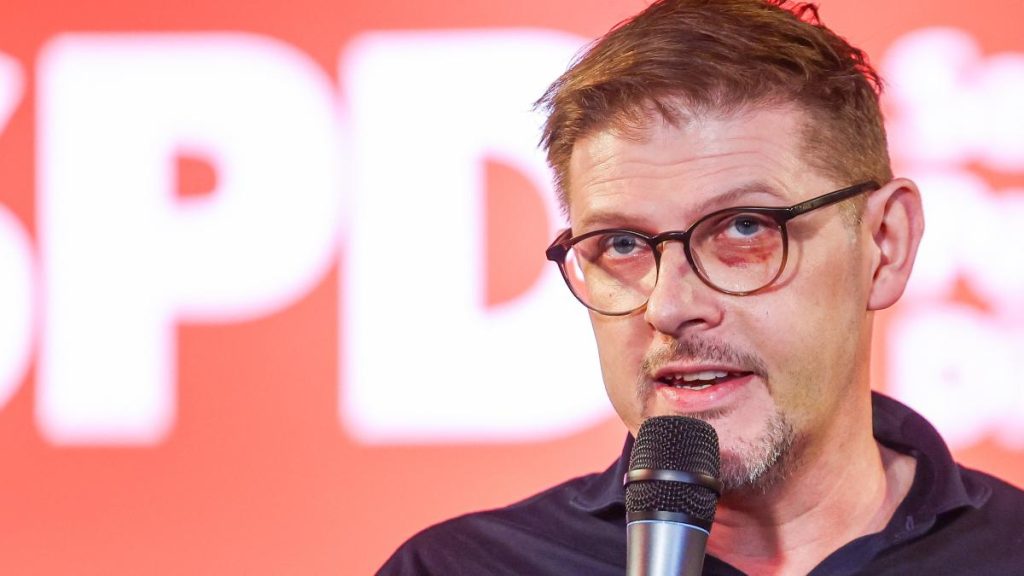SPD member of the European Parliament Matthias Ecke has spoken out defiantly after a physical attack on him in Dresden, stating that he will not be silenced. In an interview with WELT TV, Ecke warned of a societal atmosphere poisoned by the extreme right in the country. He expressed that the attack did not intimidate him and identified those responsible for the assault.
Ecke made his first public appearance a week after the attack, hanging campaign posters in Dresden. He stated that he will not be silenced and pointed out those behind the attack. He emphasized that the assault did not deter him and that his party, the SPD, has shown a strong fighting spirit. The attackers, four young individuals aged 17 and 18, had beaten Ecke while he was hanging posters, resulting in facial bone fractures that required surgery. Ecke attributed the cause of the attack to societal degradation and organized recklessness, led by actors of the extreme right, such as the AfD and other networks in Saxony.
Bundesinnenministerin Nancy Faeser described the attack as a breaking point, stemming from the deliberate poisoning of the atmosphere in the country by the far right. She emphasized the need for the rule of law to confront this political aggression decisively, sending a clear message to perpetrators that their actions are wrong and will face consequences. The Minister asserted that security authorities would take strict action against extremists and hate crimes, noting the role of online hate in fueling such acts. Faeser expressed high regard for Ecke’s resilience following the brutal attack, praising his courage and the police’s effective handling of the case.
Ecke commended the police’s swift identification of the perpetrators but acknowledged that not all victims of right-wing violence receive similar support. He stressed the importance of the state sending a strong signal against such violence, with prompt consequences for offenders. Following the attack on Ecke, multiple other incidents targeting political figures were reported, prompting discussions on enhancing protection for politically active individuals and enacting stricter penalties for violence against politicians. initiatives such as classifying stalking of public officials at their residences as a criminal offense were also under consideration.
Overall, the attack on Ecke has sparked a renewed focus on the rising presence of extremist ideologies and violence in German society, with calls for comprehensive action to address and prevent such incidents. Ecke’s refusal to be silenced and his firm stance against political violence have garnered widespread support and highlighted the resilience of individuals in the face of adversity. The government’s commitment to addressing these challenges and ensuring the safety of all individuals engaged in political activities is crucial in safeguarding democracy and promoting a more inclusive and tolerant society.


